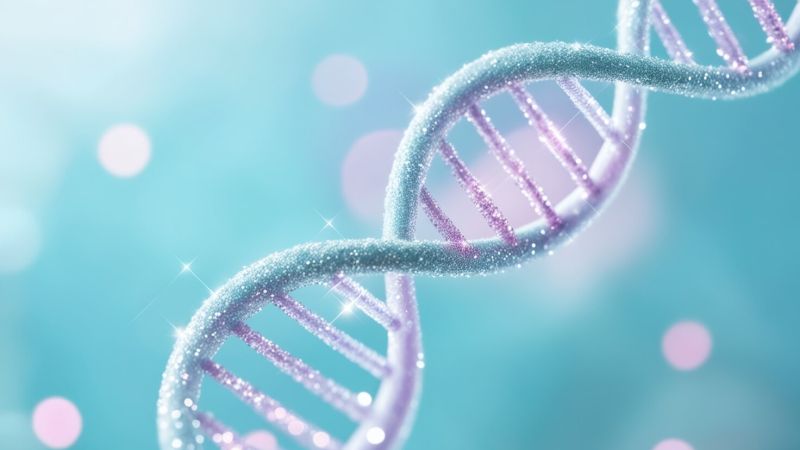
Understanding Andrew Huberman’s Perspective on NAD+ Usage and Its Benefits
The Brain
There has been growing interest in the potential benefits of NAD+ precursor as a supplement for health and longevity. Andrew Huberman, a prominent neuroscientist and professor at Stanford University, has been at the forefront of researching NAD+ precursor and its effects on the body. This article will explore Huberman’s background, his role in neuroscience research, and his views on NAD+ precursor. It will also delve into the science behind NAD+ precursor, its potential benefits, and the criticisms and controversies surrounding its use.
Who is Andrew Huberman?
Andrew Huberman1 is a well-respected neuroscientist known for his groundbreaking research in the field of neuroscience. He completed his undergraduate studies at Columbia University and received his Ph.D. in Neurobiology from the University of California, Los Angeles. Currently, he is a professor in the Department of Neurobiology at Stanford University School of Medicine.
Huberman’s Background and Expertise
With a strong foundation in neurobiology2, Huberman specializes in studying the visual system and how it interacts with the brain. His research focuses on understanding the mechanisms that regulate neural plasticity and vision restoration. Andrew Huberman’s journey in the field of neuroscience began during his undergraduate years at Columbia University. Fascinated by the complexities of the brain and its connection to human behavior, he delved into the world of neurobiology. His insatiable curiosity and passion for understanding the inner workings of the brain led him to pursue a Ph.D. in Neurobiology at the University of California, Los Angeles.
During his graduate studies, Huberman’s research focused on the visual system, a complex network of neurons responsible for processing visual information. He explored the intricate connections between the eyes and the brain, unraveling the mechanisms that enable us to perceive the world around us. His work shed light on the remarkable plasticity of the visual system and its potential for restoration after injury or disease.
Huberman’s Role in Neuroscience Research
Huberman is highly regarded in the field of neuroscience for his groundbreaking contributions. His research has paved the way for significant advancements in our understanding of the brain and its intricate workings. One of Huberman’s notable achievements is his extensive research on neural plasticity. Neural plasticity refers to the brain’s ability to reorganize and adapt in response to new experiences or changes in the environment. Through his studies, Huberman has uncovered the underlying mechanisms that drive neural plasticity, providing valuable insights into how the brain can recover and adapt after injury or disease.
Furthermore, Huberman’s research has focused on vision restoration, a field with immense potential for improving the lives of individuals with visual impairments. By investigating the neural circuits involved in vision, he has made significant strides in understanding how to restore vision in those who have lost it. His findings have opened up new possibilities for developing innovative therapies and treatments for various visual disorders.
Huberman’s groundbreaking research has been published in numerous prestigious scientific journals, garnering widespread recognition and acclaim. His studies have not only expanded our knowledge of the brain but also provided a foundation for future research in the field of neuroscience.
As a respected professor in the Department of Neurobiology at Stanford University School of Medicine, Huberman continues to inspire and mentor the next generation of neuroscientists. His dedication to advancing our understanding of the brain and his passion for scientific discovery makes him a leading figure in the field of neuroscience.
The Science Behind NAD+ Precursor
In this podcast, “Supplementation for Health and Performance3”, Huberman recommends supplements for mental health, physical health, relaxation, and sleep.
Now, let’s delve into the science behind NAD+ and how it functions in the body.
NAD+ precursor, is a key precursor of nicotinamide adenine dinucleotide (NAD+), which is a coenzyme found in all living cells. NAD+ plays a crucial role in cellular metabolism, energy production, and DNA repair.
When taken as a supplement, NAD+ precursor is converted into NAD+ in the body. This conversion is essential as NAD+ provides crucial support to various cellular processes. Research suggests that NAD+ precursor supplementation may help increase NAD+ levels, which tend to decline with age. By replenishing NAD+ stores, NAD+ precursor has the potential to support cellular processes and overall well-being.
Understanding the Role of NAD+
To truly appreciate the significance of NAD+ precursor, it is important to understand the role of NAD+ in the body. NAD+ is involved in numerous cellular processes, including energy metabolism, DNA repair, and gene expression. One of the key functions of NAD+ is its role as a coenzyme in energy production. It is a vital component in the process of converting food into usable energy, allowing our cells to function optimally. Without sufficient NAD+, our cells would struggle to produce the energy needed for everyday activities.
In addition to energy metabolism, NAD+ also plays a critical role in DNA repair. Our DNA is constantly exposed to various damaging agents, such as radiation and toxins. NAD+ helps activate enzymes that repair damaged DNA, ensuring the integrity of our genetic material.
Furthermore, NAD+ is involved in regulating gene expression. It acts as a signaling molecule, influencing the activity of certain genes and proteins. This regulation of gene expression is essential for maintaining cellular homeostasis and adapting to changes in the environment.
The Link Between NAD+ precursor and NAD+ Levels
As we age, our NAD+ levels naturally decline. This decline is thought to contribute to the aging process and the development of age-related diseases. Therefore, finding ways to boost NAD+ levels has become a topic of great interest in the field of anti-aging research. One potential strategy is NAD+ precursor supplementation. By providing the body with NAD+ precursor, which is readily converted into NAD+, we can potentially increase NAD+ levels and support its various functions.
Studies have shown that NAD+ precursor supplementation can effectively raise NAD+ levels in different tissues and organs. This increase in NAD+ has been associated with numerous health benefits, including improved mitochondrial function, enhanced metabolism, and increased lifespan in animal studies.
Furthermore, NAD+ precursor has been found to activate certain enzymes involved in DNA repair, promoting cellular health and longevity. By supporting DNA repair mechanisms, NAD+ precursor may help prevent the accumulation of DNA damage, which can lead to cellular dysfunction and age-related diseases.
The Future of NAD+ Precursor Research
While the science behind NAD+ precursor is promising, it is important to note that research in this field is still ongoing. Many studies have been conducted in animal models, and more research is needed to understand the effects of NAD+ precursor supplementation in humans fully.
Scientists are actively investigating the potential benefits and risks of NAD+ precursor supplementation, as well as the optimal dosage and long-term effects. Clinical trials are underway to evaluate the safety and efficacy of NAD+ precursor in humans, which will provide valuable insights into its potential as an anti-aging intervention.
As the field of aging research continues to advance, NAD+ precursor remains a topic of great interest. Its ability to boost NAD+ levels and potentially promote cellular health and longevity makes it a promising avenue for further exploration.
In conclusion, NAD+ precursor holds great potential in supporting various cellular processes and overall well-being. By understanding the science behind NAD+ precursor and its role in the body, we can better appreciate its potential as an anti-aging intervention and eagerly await further research in this exciting field.
The Brain
Andrew Huberman’s Views on NAD+
As a leading neuroscientist, Andrew Huberman has extensively researched the effects of NAD+ precursor on the body and brain. Let’s take a closer look at his research and personal views on NAD+ precursor.
Neuroscientist Andrew Huberman’s fascination with NAD+ precursor, or Nicotinamide Mononucleotide, has led him down a path of groundbreaking research and personal experimentation. NAD+ precursor, a naturally occurring compound found in the human body, has captured the attention of scientists and health enthusiasts alike due to its potential anti-aging properties.
Huberman’s Research on NAD+ Precursor
Huberman’s research on NAD+ precursor has focused on understanding its impact on brain function, especially in the context of aging. His studies have demonstrated that NAD+ precursor supplementation may have positive effects on neural plasticity and cognitive function.
In one of his notable studies, Huberman and his team delved into the intricate mechanisms of NAD+ precursor and its influence on energy metabolism in the brain. Through meticulous experimentation, they found that NAD+ precursor supplementation could enhance mitochondrial function and overall energy production in the brain. This discovery has significant implications for combating age-related cognitive decline and neurodegenerative diseases.
Furthermore, Huberman’s research has also shed light on the potential of NAD+ precursor to promote healthy aging. By studying the effects of NAD+ precursor on cellular senescence, he has uncovered promising evidence suggesting that NAD+ precursor supplementation could slow down the aging process at a cellular level.
Huberman’s Usage and Experience with NAD+
Aside from his research, Huberman has also personally experimented with NAD+ precursor supplementation. In interviews, he has mentioned that he takes NAD+ precursor as part of his health regimen and has reported improvements in his energy levels and cognitive function.
Huberman’s personal experience with NAD+ precursor has not only fueled his passion for studying its effects but has also provided him with valuable insights into its potential benefits. His firsthand accounts of increased energy levels and enhanced cognitive function serve as a testament to the potential of NAD+ precursor as a powerful tool in the pursuit of optimal brain health.
However, it is important to note that personal experiences may vary, and further research is needed to validate these claims. Huberman himself acknowledges the need for rigorous scientific investigation to fully understand the mechanisms and long-term effects of NAD+ precursor supplementation.
With each research endeavor and personal experience, Andrew Huberman continues to contribute to the growing body of knowledge surrounding NAD+ precursor. His dedication to unraveling the mysteries of this fascinating compound paves the way for a future where age-related cognitive decline may be mitigated, and brain health can be optimized.
The Potential Benefits of NAD+ Precursor
Now, let’s explore the potential benefits that NAD+ precursor may offer.
NAD+ Precursor and Aging
One of the most intriguing aspects of NAD+ precursor is its potential role in slowing down the aging process. Research suggests that NAD+ precursor supplementation may help combat age-related decline by supporting cellular function and DNA repair. Although more studies are needed to fully understand the anti-aging effects of NAD+ precursor, initial findings are promising and warrant further investigation.
NAD+ Precursor and Energy Levels
Energy levels naturally decline as we age, impacting our overall vitality and well-being. NAD+ precursor has been reported to enhance cellular energy production by boosting NAD+ levels, potentially improving energy levels and overall stamina. While current research supports the potential of NAD+ precursor to enhance energy metabolism, it is crucial to approach these findings with caution, as more research is needed to establish its efficacy.
NAD+ Precursor and Cognitive Function
Cognitive decline is a common concern as we age, and many individuals are interested in interventions that can support brain health. Preliminary research suggests that NAD+ precursor may have positive effects on cognitive function, including memory and attention. However, it is important to note that more studies are needed to establish the efficacy of NAD+ precursor in promoting cognitive function, particularly in humans.
Criticisms and Controversies Surrounding NAD+ Precursor
While NAD+ precursor shows promise as a potential supplement for health and longevity, certain criticisms and controversies surround its use.
The Debate on NAD+ Precursor’s Effectiveness
Some skeptics argue that the evidence supporting NAD+ precursor’s effectiveness is limited and inconsistent. They highlight the need for more robust clinical trials to validate the claims surrounding the supplement. It is essential to acknowledge that scientific consensus on NAD+ precursor’s effectiveness is still evolving, and more research is needed to draw definitive conclusions.
Safety Concerns and Side Effects of NAD+ Precursor
Like any supplement, NAD+ precursor comes with potential risks and side effects. While NAD+ precursor is generally considered safe when taken in recommended doses, long-term safety data is limited.
Individuals considering NAD+ precursor supplementation should consult with a healthcare professional to understand potential interactions with existing medications or underlying health conditions.
Conclusion
In conclusion, Andrew Huberman’s perspective on NAD+ precursor usage and its benefits provides valuable insights into the role of NAD+ precursor in supporting health and longevity. While more research is needed to fully understand NAD+ precursor’s potential benefits and drawbacks, Huberman’s research contributes to the growing body of knowledge in this field.
As with any supplement, it is important to approach NAD+ precursor supplementation with caution and consult with a healthcare professional. By staying informed and keeping up with the latest research, individuals can make well-informed decisions regarding their health and well-being. Elevate your NAD+ levels with Jinfiniti® Vitality ↑® NAD+ Booster to get better sleep and have more energy throughout the day.
Lastly, if you’re interested in going deeper on health-related content, here are a few of our recent posts that you may want to read:
- Unlocking the Secrets: Effective Strategies to Slow Aging
- The 24 Hottest Biohacking Trends in 2024
- 9 Powerful Benefits of Optimizing Your NAD
- Why Muscle Is Your Biggest Alley in the Anti-Aging Strategy
Referenced Sources:
Read More














